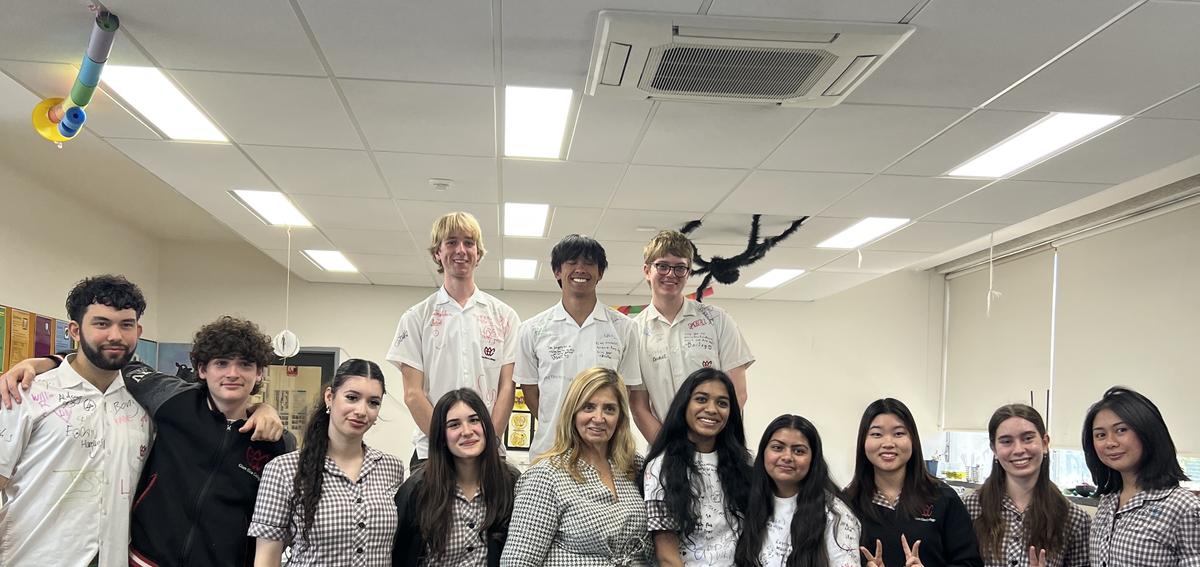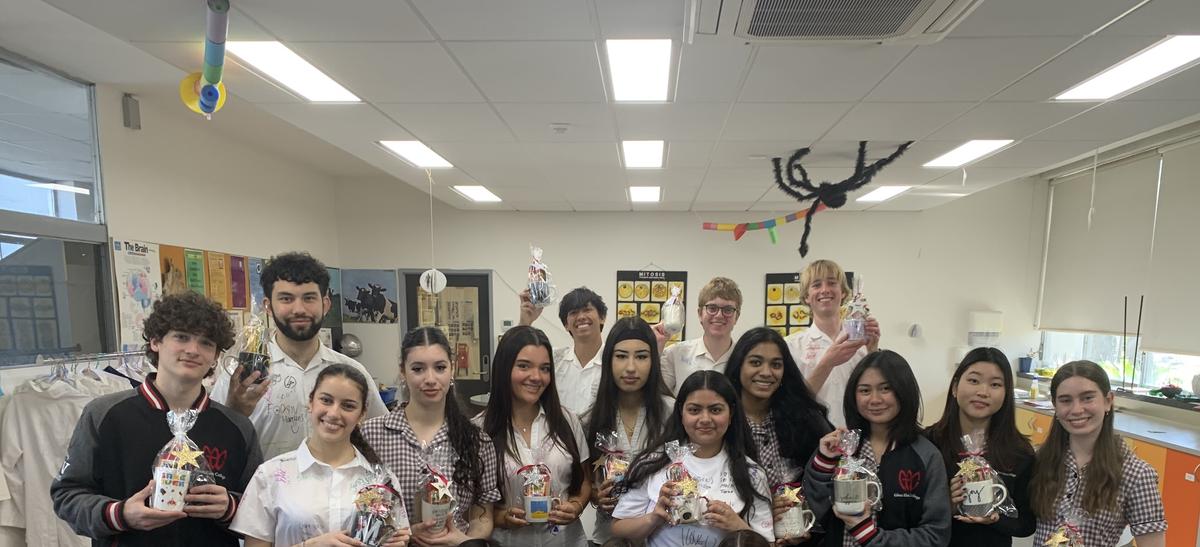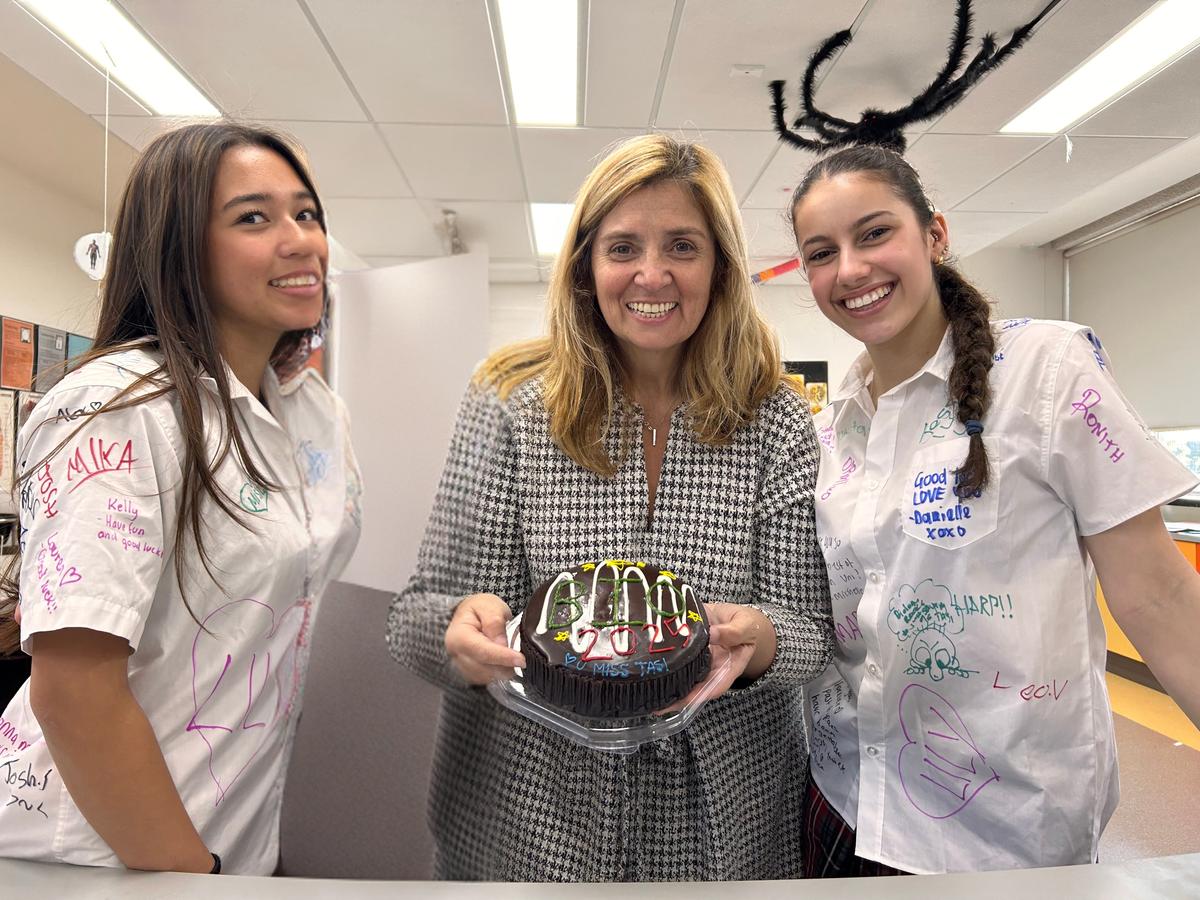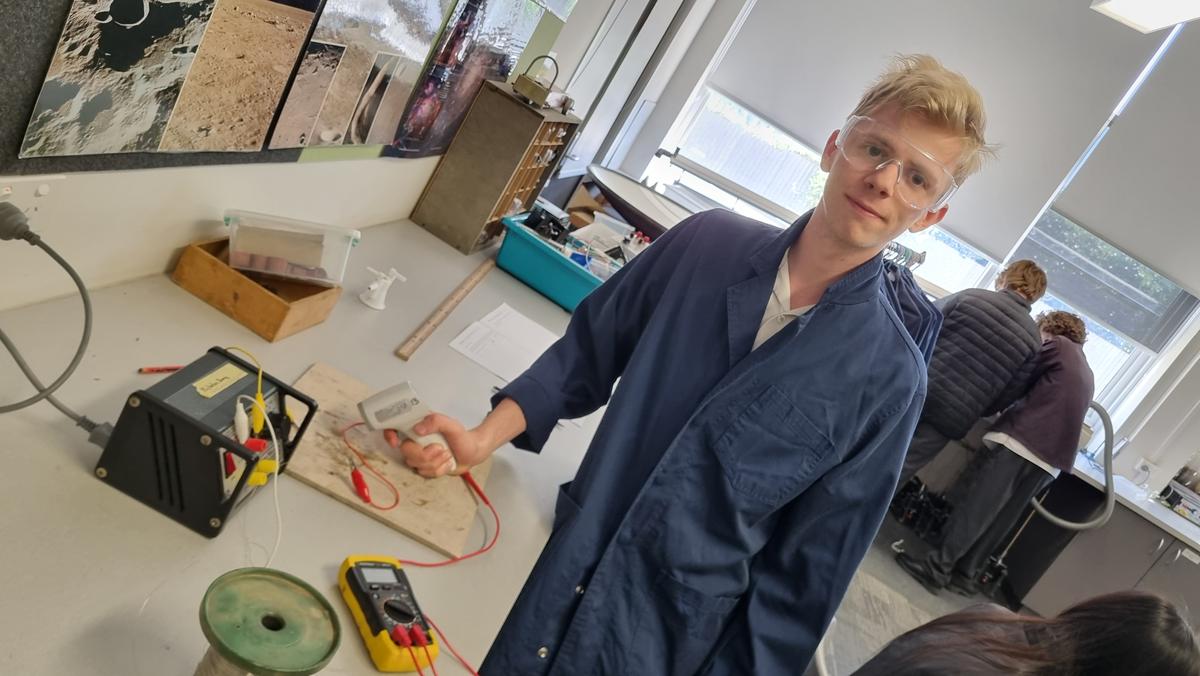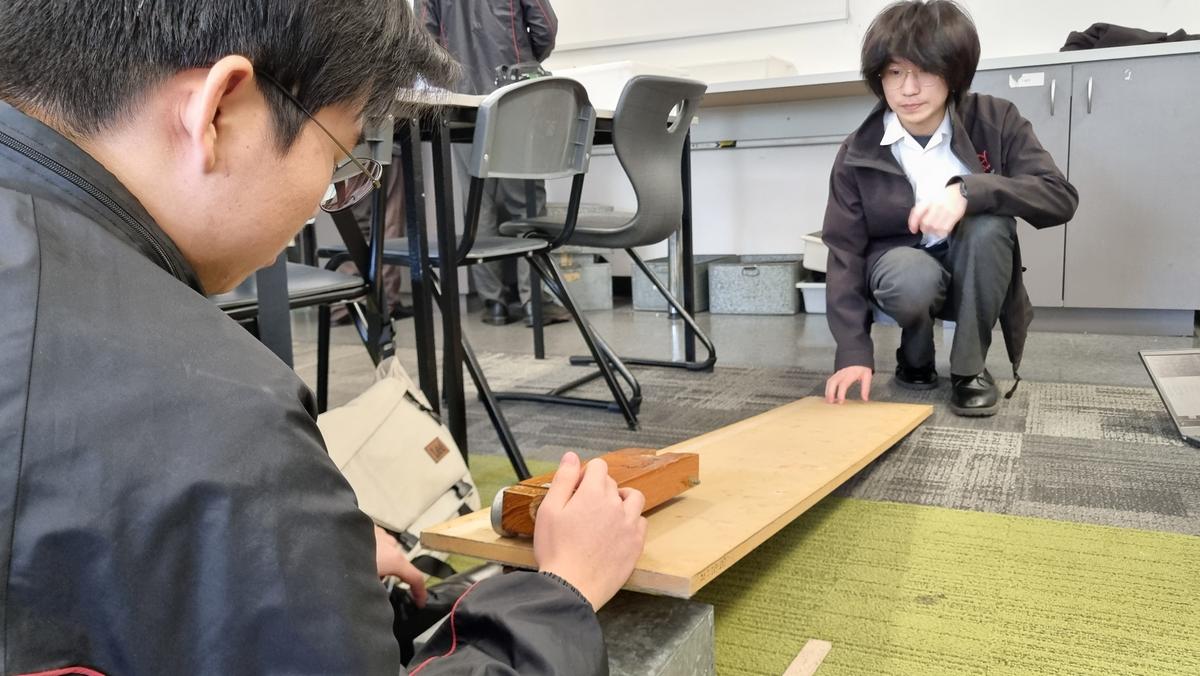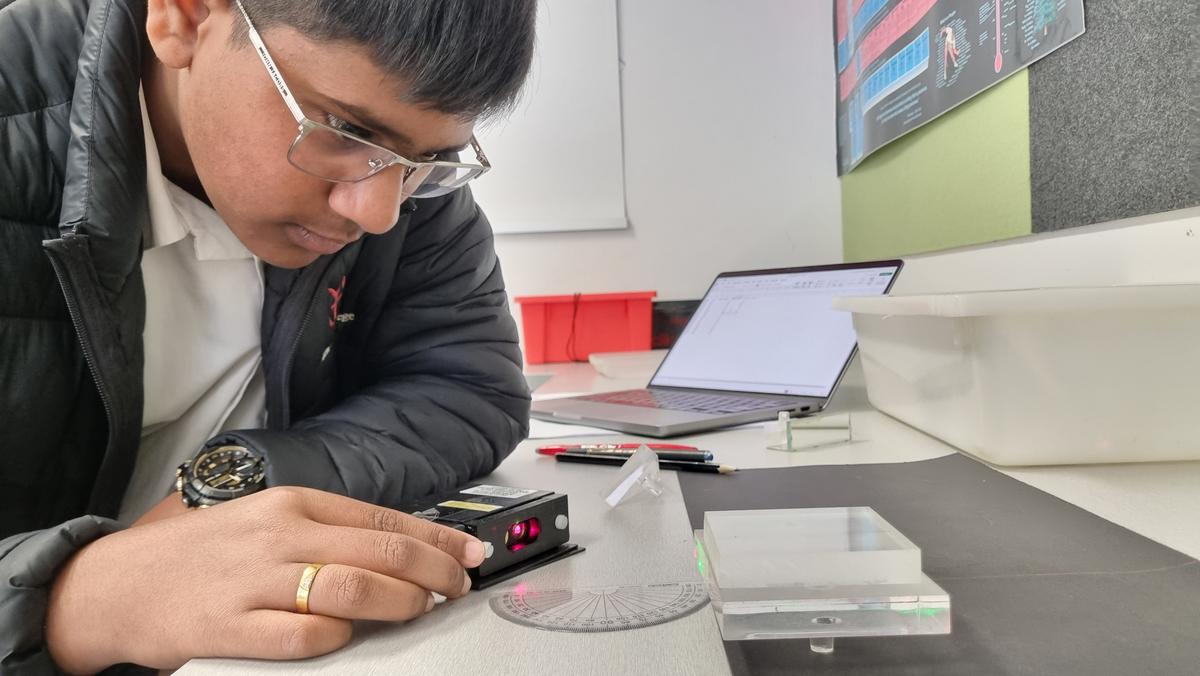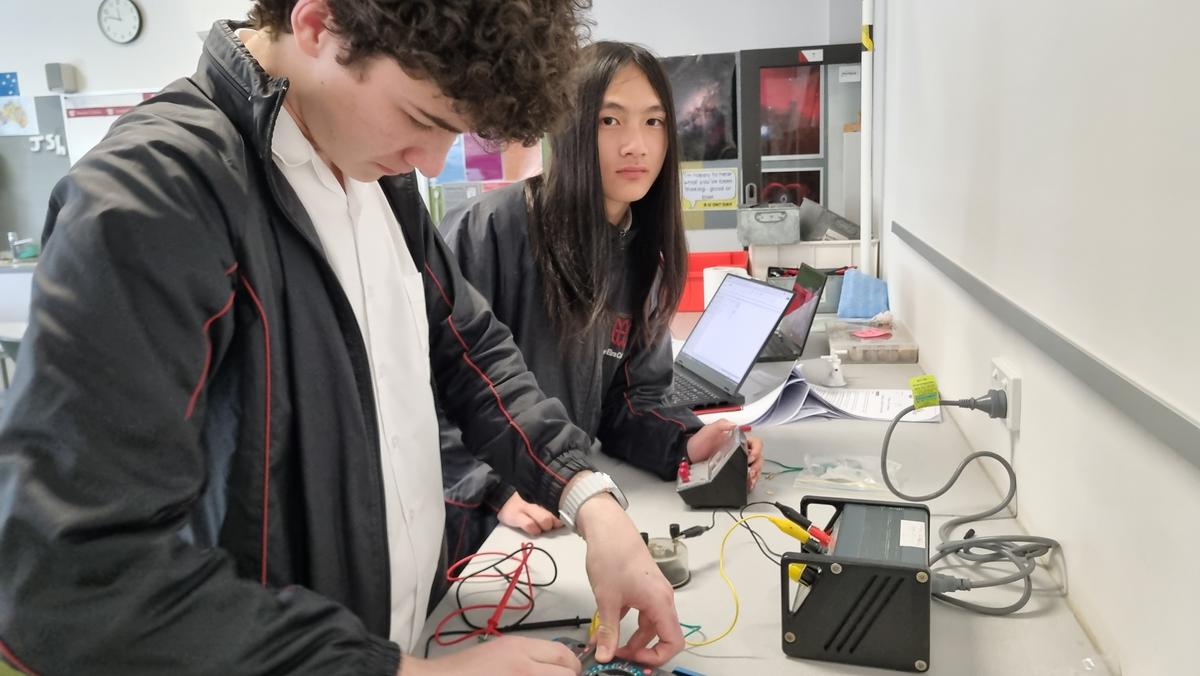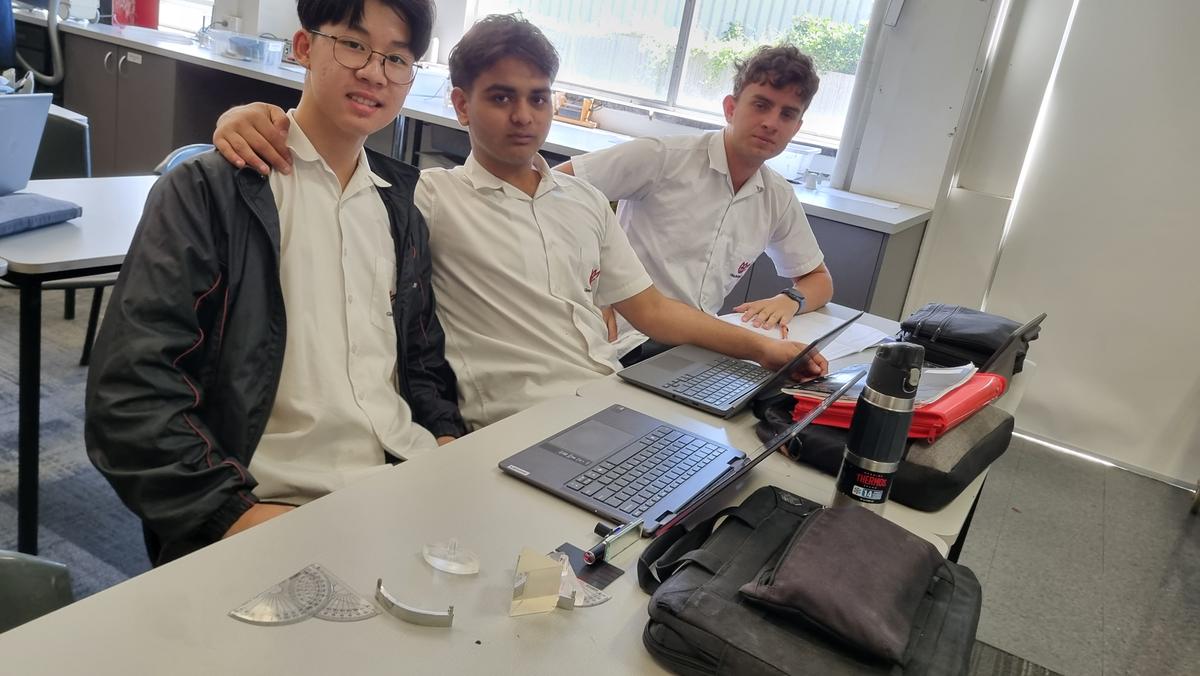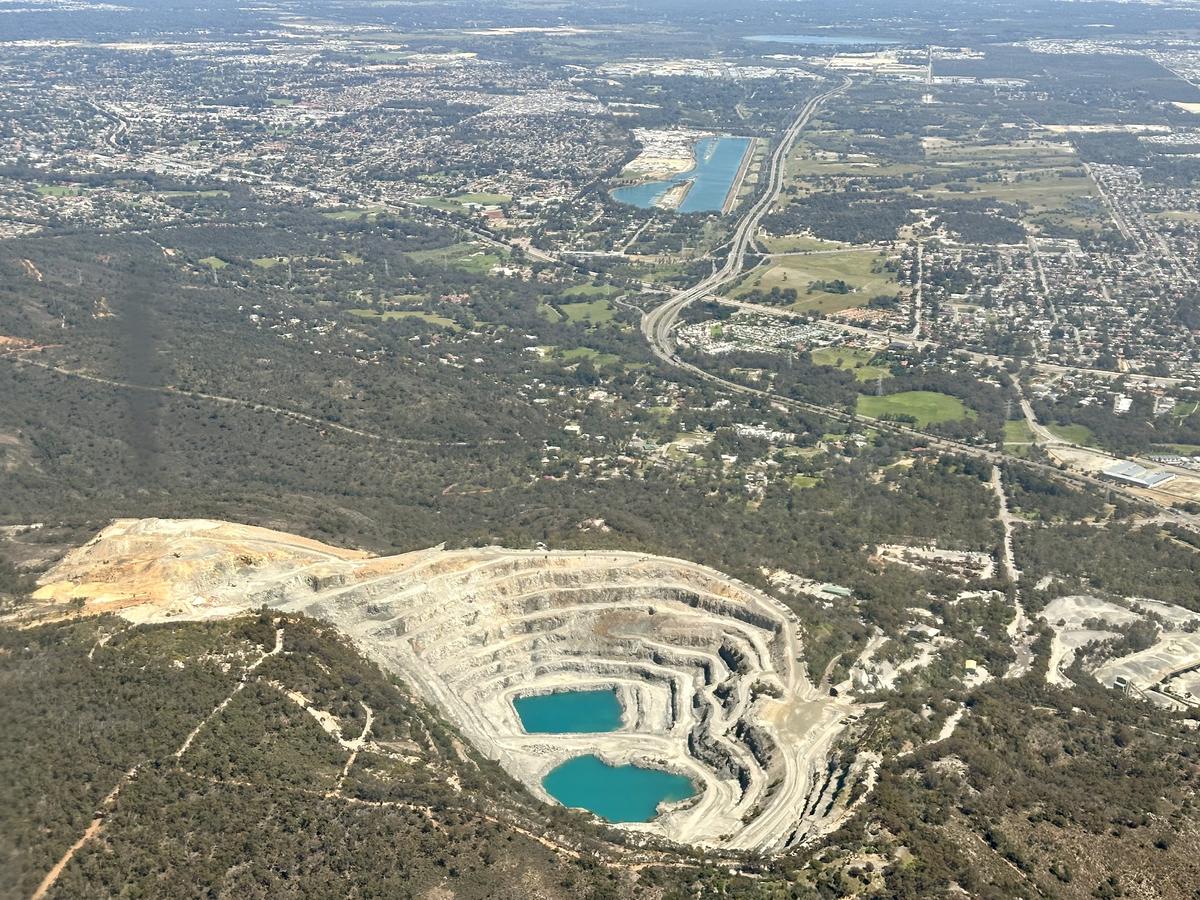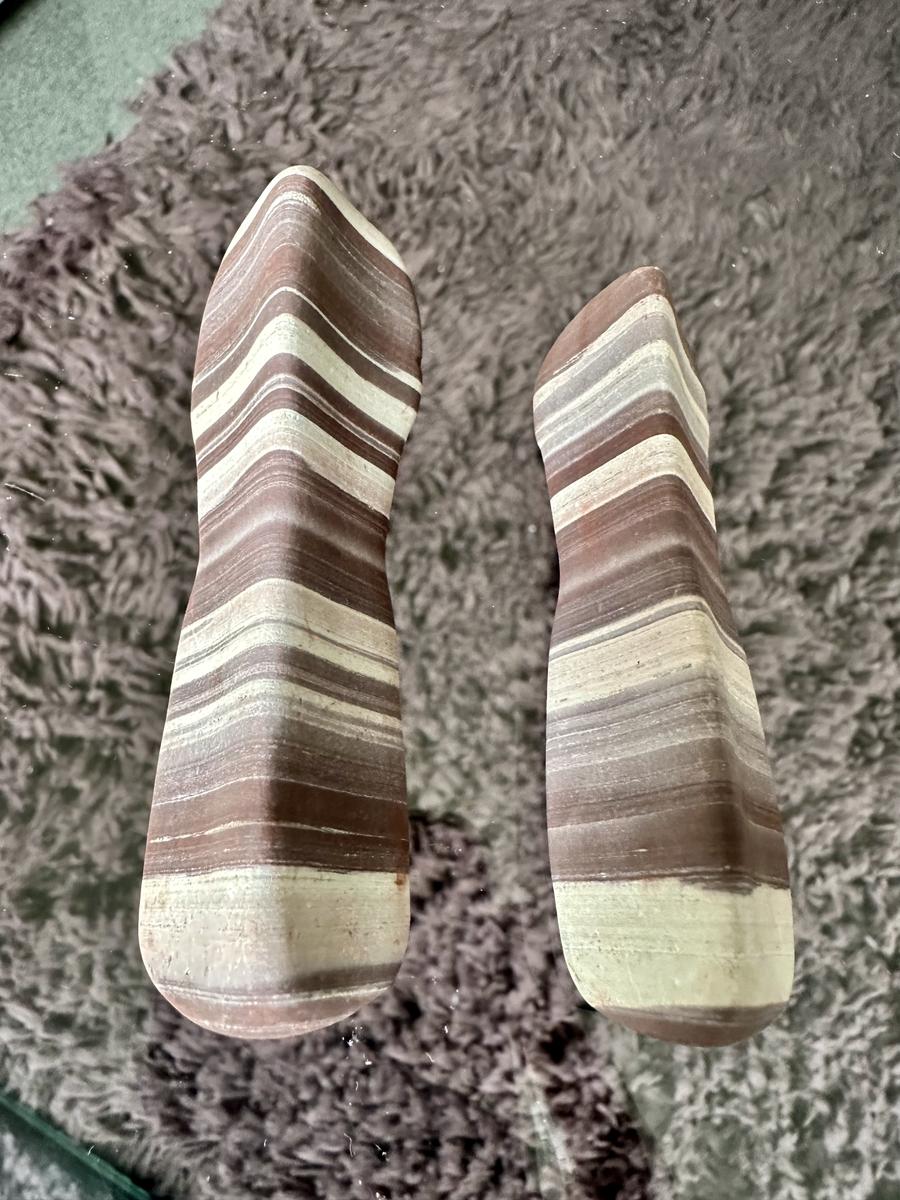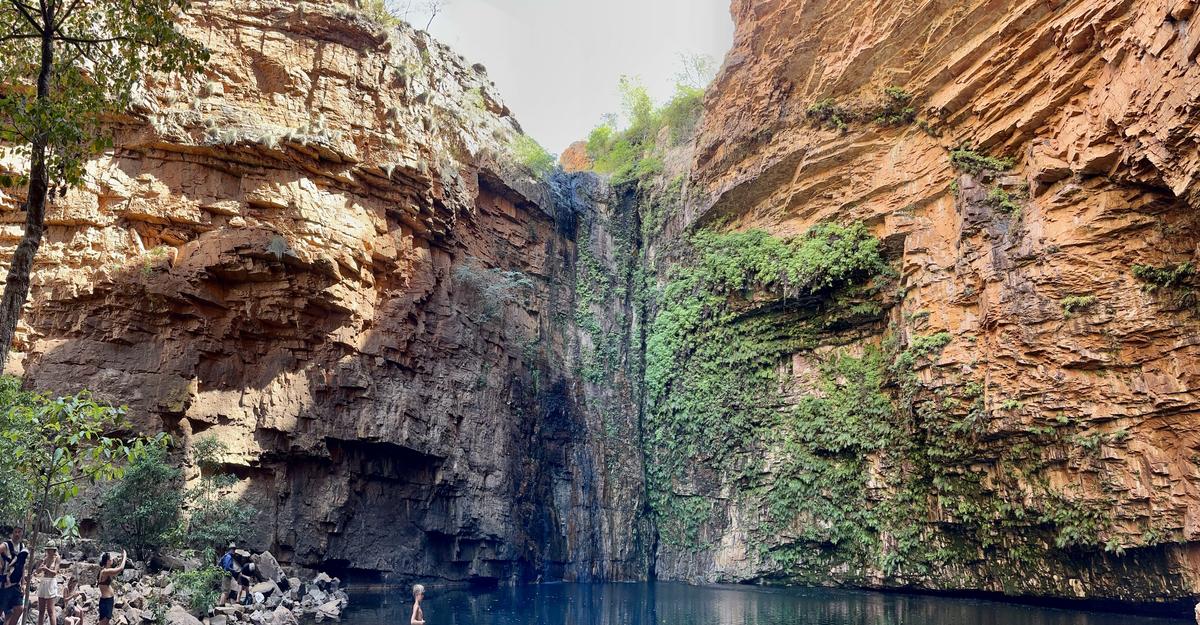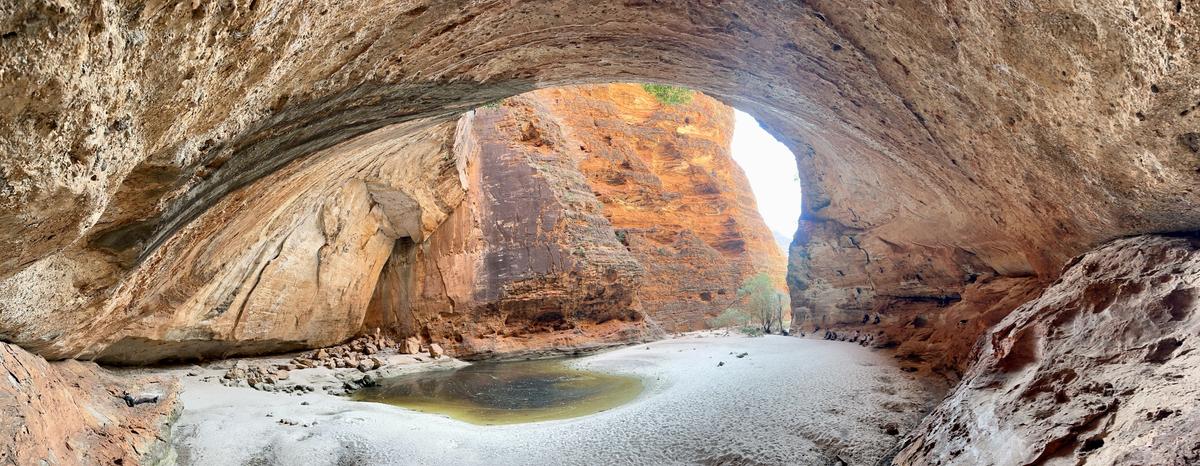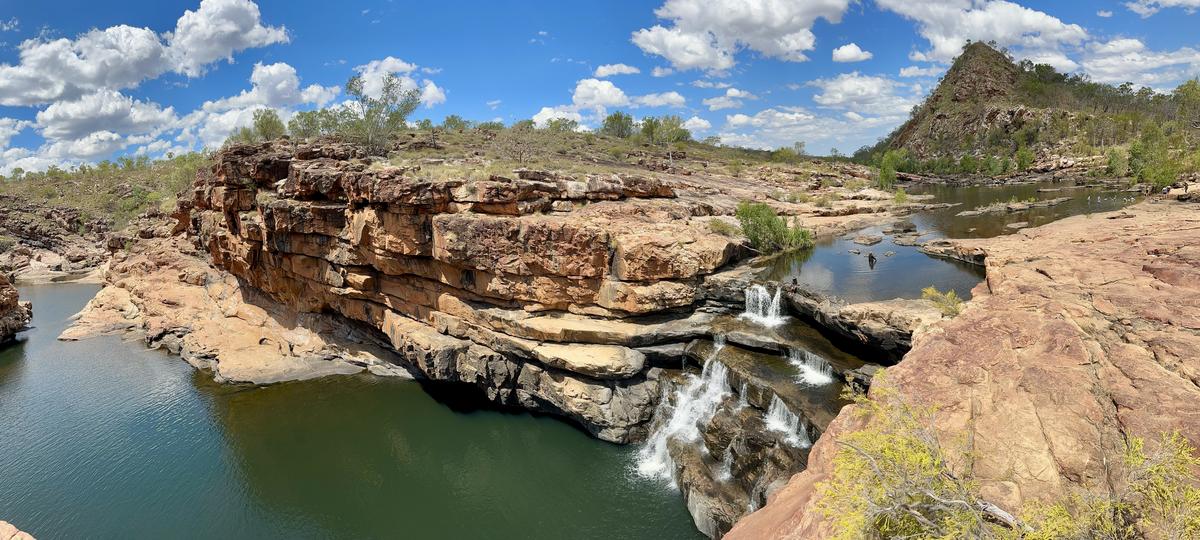Science News

Unit 2 Physics Extended Practical Investigation
Year 11 Physics students are in the middle of their three-week Extended Practical Investigation for Unit 2 Outcome 2. Working in small teams, they’ve designed and are now conducting experiments on motion, light and electricity - from exploring how the angle of a slope affects acceleration to testing Snell’s Law and verifying Ohm’s Law.
Each group has developed its own question, method and data collection plan, applying experimental design skills to real-world scenarios. With another week to go, students are busy analysing their results, refining graphs and comparing their findings with theory - a great step toward becoming independent and thoughtful experimental scientists.
Erik Van Weeghel
Science Learning Area Leader
Year 12 Biology
Year 12 Biology students celebrated their last lesson with cake. We wish them well for their exams!
What do teachers do in the holidays?
Relax, unwind, catch up with friends and family, attend appointments, travel, plan lessons/units of work, assess work amongst others but professional development is also high on the list.
I took the opportunity to embark on a trip of the Kimberley to learn more about:
- Geology and weathering (taught in Year 8 as part of the Rocks and Minerals unit)
- Hydroelectricity generation and water management (taught in the Year 7 Resources unit and the Year 8 Energy unit)
- Plate tectonics (taught in Year 9 and 10)
- Native Australian Flora and Fauna (taught in Year 7 as part of the Classification and Ecological relationships units)
- Indigenous perspectives to Science (Indigenous Research Methodology), History as told through dreaming stories and art work and their connection to country (interspersed throughout the whole Science curriculum as part of Science as a human endeavour)
Science is all around us and it truly is beautiful and wonderous.
How many of these Australian flora and fauna had you heard of?
Wallaroo, Rock Wallaby, Freshwater crocodiles, Golden Orb Weaver, Silver Cobbler, Australasian Darter, Great Bowerbird, Boab Tree, Kimberley Rose, Kapok Tree, Stinking Passionflower, Spinifex, Brown falcon, White-bellied Sea eagle, Brown goshawk, Black kite, Whistling kite, Black-breasted buzzard.
How many of these Australian rocks had you heard of?
Zebra rock, Ribbon stone, Astronomite, Okapi, Rainbow stone.
Some highlights of this trip included:
- Witnessing the incredible termite mounds with their unique shapes, sizes and colours. These organisms are an integral part of the food chain in the Kimberely.
- Learning about the distinct dry and wet seasons, particularly with the impact on local communities, industries and tourism and how providers plan around these important dates.
- Hearing about the impact that alcohol has had on the Fitzroy Crossing community and the need to implement a dry mandate for social cohesion and safety was sobering. Then having to be breathalysed before being able to purchase an alcoholic drink in the only licenced venue in town, was an experience.
- Being exposed to art work through decoration of boab nuts and stories though indigenous art paintings which had a unique style of depicting the Wandjina character and through Rock art.
- The sheer range of sculpting that the weather and geological processes have managed to create over millions of years resulting in the most unique and beautiful geographical features of rivers, gorges, outcrops, rocks and minerals.
I’m looking forward to sharing my newfound experiences with my colleagues and my classes.
Marc Lewandowski
Chemistry and Science Teacher

